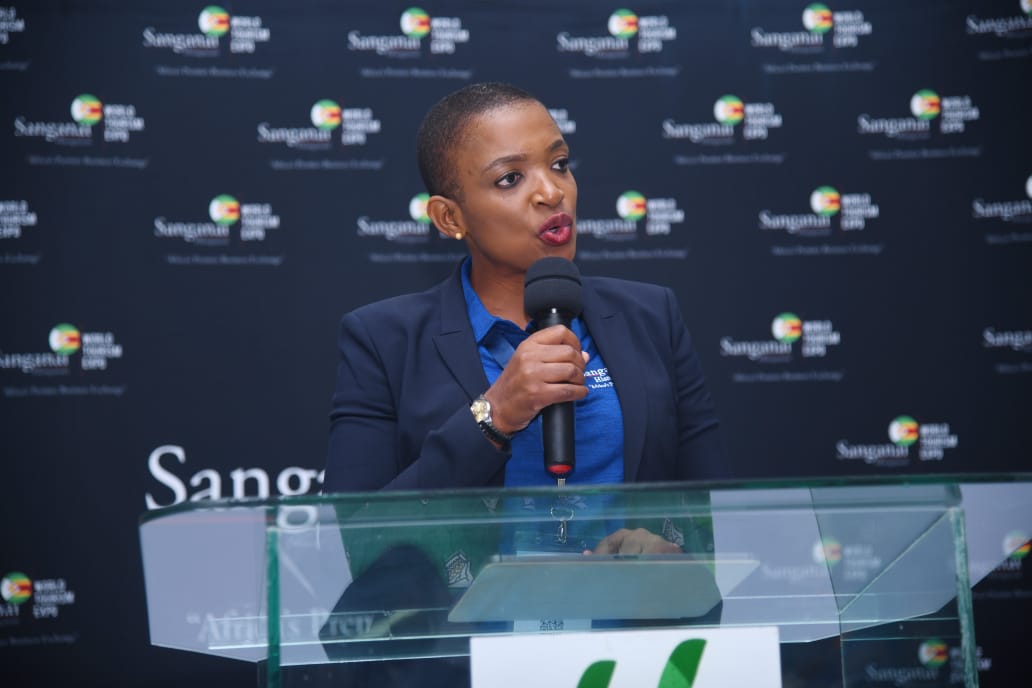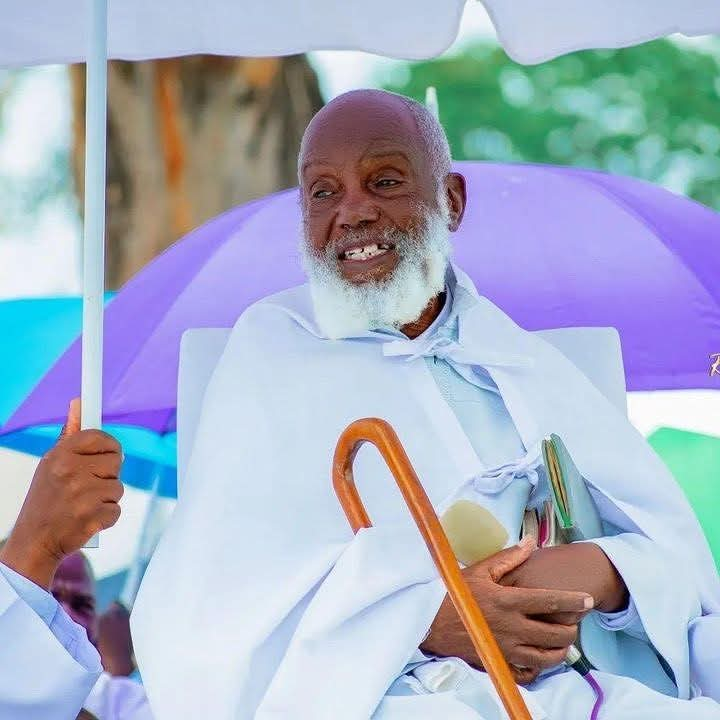Current Affairs
Public Office Is Not a Playground: Citizens Demand Leadership Reform

A growing number of Zimbabweans are calling for urgent legislative reforms to set minimum educational qualifications for councillors and Members of Parliament (MPs), as concerns mount over weak governance, poor service delivery and underperforming elected officials.
Currently, the requirements for one to hold public office in Zimbabwe are minimal—being a registered voter aged 18 or above. No formal education is required. However, many citizens now argue that this outdated legal standard is contributing to the erosion of leadership quality, especially at the local government level.
The issue took centre stage during a recent “This Morning on Asakhe” X-Spaces discussion hosted by the Centre for Innovation and Technology (CITE), where governance expert Rejoice Ngwenya stressed the urgent need for reforms.
“Councillors are the closest point of contact between citizens and government. They need to understand the issues they are dealing with,” said Ngwenya.
While he acknowledged that academic certificates alone do not guarantee integrity or good leadership, Ngwenya insisted that basic literacy and formal training are essential in helping leaders make informed decisions, read complex budgetary documents, and engage in sound policy formulation.
“It is not just about performance. It’s about capacity. Councillors and MPs must be literate enough to analyse budgets, bylaws, and policies. These roles demand critical thinking and legislative competence,” he added.
Ngwenya warned of the rise of career politicians who are more skilled in “praise-singing than problem-solving” and said education empowers leaders to be confident, assertive, and solutions-orientated.
Demand for Professionalism in Public Office
Participants in the discussion agreed that the quality of leadership across urban and rural councils is deteriorating due to the presence of underqualified individuals who lack the basic skills to perform.
Champion John cited the Harare City Council as a clear example of technical incompetence.
“Many councillors do not even understand financial statements. They cannot adopt basic technology like Enterprise Resource Planning (ERP) systems, which are critical for service delivery,” he said.
John explained that service delivery challenges such as water shortages, poor waste management, and bad roads—often stem from a lack of leadership capacity, not just budget constraints.
“Service delivery doesn’t happen by accident. It requires planning, knowledge, and coordination. We need leaders who can be trained and who deliver results,” he said.
Brighton Kunaka, another contributor, called for a shift toward merit-based leadership, saying qualifications encourage a culture of continuous learning and self-improvement.
“Schools exist for a reason. We must promote leaders who value education, not just populism. This is about investing in the future,” Kunaka said.
Education as a Tool for Better Policy Engagement
Beke Mguni, a political analyst, pointed out that many MPs fail to engage meaningfully during policy debates in Parliament because they lack the educational foundation to fully grasp complex legislative issues.
“How can MPs debate national policy if they cannot read or interpret legislation? Minimum qualifications are necessary to ensure meaningful participation,” she said.
Mguni also stressed that Parliament should not be reduced to a symbolic gathering of elected officials who cannot represent the interests of the people due to limited understanding of governance frameworks.
“We pass laws in Parliament, yet many MPs do not understand their role as lawmakers. If they had the right education, they would better serve their communities,” she added.
A Call for Balanced Reform
While most contributors supported the idea of a minimum qualification—suggesting at least two A-Level passes or a professional certificate they also emphasised the importance of soft skills, such as emotional intelligence, ethical leadership, and communication abilities.
Ngwenya concluded that beyond formal education, councillors and MPs should undergo structured training in policy, communication, and research as part of their public service induction.
“A good leader must know how to gather data, analyse it, and propose solutions. That is a skill that can be taught—and must be taught if we want results,” he said.
As public frustration over poor governance grows, the push for academic and professional standards in politics may gain momentum. However, translating this push into legislative change will require both political will and constitutional review.
Current Affairs
Minister Rwodzi Charts Path as Sector Takes Lead in GDP Growth

Itai Mazire
Tourism and Hospitality Industry Minister Barbara Rwodzi has implored players in the sector to embrace innovation, sustainability, and stronger partnerships to safeguard Zimbabwe’s tourism gains, as the industry now leads national GDP growth ahead of mining and agriculture.
In a speech delivered on her behalf by Tourism Permanent Secretary Dr. Takaruza Munyanyiwa at the Hospitality Association of Zimbabwe (HAZ) Summit and Annual General Meeting in Harare today, Minister Rwodzi said the country stood at a “historic crossroads” following its recent listing by Forbes as the best destination to visit in 2025.
“This is a well-deserved accolade which we should celebrate and sustain going forward. Congratulations, makorokoto, amhlope to the service providers of the tourism and hospitality industry of Zimbabwe.”
The Minister applauded the sector’s resilience in the face of pandemics, economic headwinds, and climate-related shocks, noting that the spirit of Zimbabwean hospitality remains unbroken.
“We have continued to smile, to serve, and to tell our authentic story, hence reaping the rewards now,” she said.
Giving an update on performance, Minister Rwodzi reported that international tourist arrivals grew by 9 percent between January and September 2025 compared to the same period last year, with strong traffic from the Americas, Africa, and Asia.
Domestic travel also surged by 20.9 percent over the same period, while the sector generated approximately USD 922 million in 2025 a 10 percent rise from the USD 839 million recorded last year.
“These are encouraging signs that our recovery is gaining positive traction. But future-proofing requires more than recovery it demands transformation,” she said.
Minister Rwodzi outlined five pillars she said would anchor the transformation of the sector: digitalisation; sustainable and climate-resilient tourism; human capital development; infrastructure and connectivity; and stronger branding and market diversification.
“The future of hospitality is digital,” she said. “We must move from brochures to big data, from paper-based booking to smart platforms.”
She urged operators to embrace online booking systems, virtual reality tourism aids, and other digital tools that enhance visitor experiences.
On sustainability, Minister Rwodzi said protecting Zimbabwe’s natural and cultural heritage was “not an expense it is an investment in the longevity of our industry.”
The Minister stressed the need to invest in human capital, calling on operators to work closely with academia to bridge skills gaps and develop tomorrow’s hospitality innovators. She highlighted the First Lady, Dr. Auxillia Mnangagwa’s gastronomy vision as a key avenue for elevating Zimbabwe’s culinary offerings.
On infrastructural development across the country, she said it remained central to competitiveness: “A tourist’s journey begins long before they reach our front desk — it begins on a road, a runway, or a mobile network.”
Minister Rwodzi reiterated that Government is committed to creating an enabling environment, pointing to the recent reduction of tourism fees by up to 50 percent to lower operating costs.
“Future-proofing cannot be achieved by Government alone,” she said. “The private sector is the engine of creativity, investment, and service excellence.”
Her call for collaboration was anchored on an African proverb which states that, “Tomorrow belongs to the people who prepare for it today.”
The Minister said the role of HAZ remained critical as Zimbabwe eyes increased international tourist inflows.
“The world’s eyes are turning towards Zimbabwe. We have the assets, we have the people, we have the passion so why not?” she said.
“To HAZ, your role has never been more critical. You are the unified voice of the hospitality industry. Your strength lies in your collective action.”
She said the ongoing summit provided a platform to “strategise, innovate, and build consensus” as the sector pushes towards Vision 2030.
“The potential is vast. The time is now. Let us build not just an industry, but a legacy,” said Minister Rwodzi.
Current Affairs
Apostolic Church Founder Paul Mwazha Dies at 107

Zimbabwe and the wider African Christian community are mourning the loss of Bishop Paul Mwazha, the revered founder of the Apostolic Church in Africa, who passed away today at the remarkable age of 107.
Bishop Mwazha, widely regarded as one of the continent’s most influential religious leaders, dedicated his life to the growth and spiritual guidance of his church, which boasts millions of followers across Zimbabwe and beyond. His teachings, rooted in faith, discipline, and community service, have left an enduring legacy that continues to shape generations.
The Apostolic Church in Africa under his leadership became a cornerstone of spiritual life in many communities, providing not only religious guidance but also social support and education initiatives. Church leaders have called for prayers as they prepare for national and regional mourning rituals.
Further details on funeral arrangements and memorial services are expected to be released in the coming days.
Business
Zimbabwe Bets Big on Biotech to Fuel Industrial Revolution


Dr. Eng. Willie Ganda
By Enia Dube
The Minister of Higher and Tertiary Education, Innovation, Science and Technology Development, Hon. Dr Fredrick Shava, has thrown his weight behind biotechnology as a key driver of the country’s industrialisation and modernisation agenda.
Speaking at the National Biotechnology Authority (NBA) Strategic Planning Workshop in Kadoma, Dr Shava urged the Authority to identify biotechnology-led opportunities that can boost national production and accelerate economic growth.
“Biotechnology serves as a key catalyst for NDS2 implementation, advancing inclusive economic growth, job creation, and sustainable industrial development,” Dr Shava said, emphasising the need to integrate biotechnology into national value chains to unlock a biotechnology-driven economy. He added that this would turn innovation into industry, knowledge into enterprise, and science into jobs.
The NBA has made notable progress in establishing a strong regulatory framework, promoting biotechnology research and commercialisation, and raising public awareness about the sector’s potential. The Authority has successfully commercialised products such as Mapfura wine and Cofsol cough syrup, and has several other biotechnology products in the pipeline.
Incoming NBA Board Chairperson, Professor Idah Sithole-Niang, echoed Dr Shava’s sentiments, emphasising that the Authority’s five-year strategic plan must meaningfully contribute to the attainment of Vision 2030. “This event marks a significant milestone in the Authority’s ongoing efforts to enhance the role of biotechnology in Zimbabwe’s socio-economic development,” she said.
The workshop aimed to realign priorities and resources in response to emerging technologies and global biotechnology trends, and develop a strategic roadmap to strengthen biotechnology as a key driver of Zimbabwe’s socio-economic transformation. The rapidly evolving global biotechnology landscape, including advancements in gene editing, bio-manufacturing, and climate-smart innovations, presents both new opportunities and challenges for Zimbabwe.
“We recognise the pressing need for an inclusive and forward-looking strategic plan that can navigate the complexities of the biotechnology landscape,” Professor Sithole-Niang noted. The workshop was attended by researchers, government officials, and NBA staff, who are optimistic about the potential of biotechnology to drive Zimbabwe’s economic transformation and achieve Vision 2030.
-

 Current Affairs1 week ago
Current Affairs1 week agoOperation restore order
-

 Crime and Courts2 months ago
Crime and Courts2 months agoMasasi High School Abuse Scandal Sparks Public Outcry
-

 Crime and Courts2 months ago
Crime and Courts2 months agoKuwadzana Man Jailed for Reckless Driving and Driving Without a Licence
-

 Current Affairs3 months ago
Current Affairs3 months agoMunhumutapa Day: Zimbabwe’s Newest Public Holiday Set for Annual Observance
-

 Current Affairs4 months ago
Current Affairs4 months agoBreaking: ZIMSEC June 2025 Exam Results Now Available Online
-

 Current Affairs1 month ago
Current Affairs1 month agoBREAKING NEWS: ZANU PF Director General Ezekiel Zabanyana Fired
-

 Current Affairs3 months ago
Current Affairs3 months agoGovernment Bans Tinted Car Windows in Nationwide Crime Crackdown
-

 Current Affairs2 months ago
Current Affairs2 months agoExposed: Harare GynecologistChirume Accused of Negligence, Extortion, and Abuse



